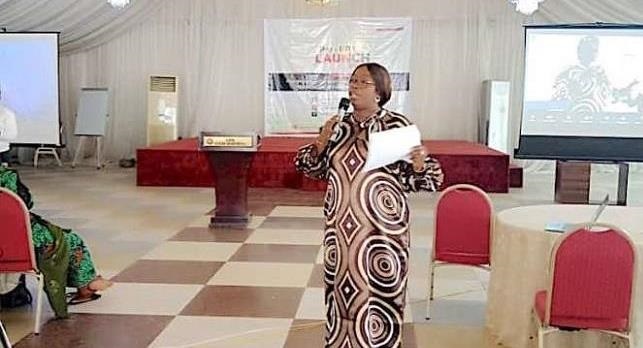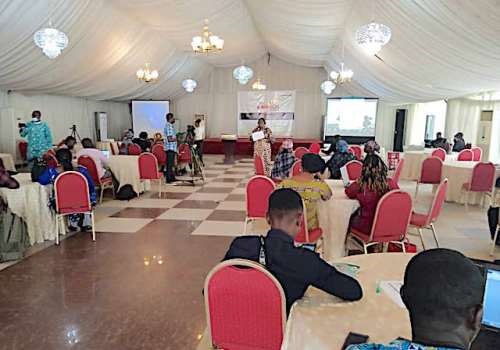ActionAid has urged the media and other agricultural stakeholders to utilise the content of the expected Third Bieñnial Review (BR-3) report on the Comprehensive Africa Agriculture Development Programme (CAADP) to push for better funding for agriculture in Nigeria and other Africa countries.

Constance Okeke, Project Manager, Food and Agriculture, ActionAid International, made the call during the Pre-Launch BR-3 Review Meeting held from February 2 to 3, 2022, in Abuja.
The meeting, themed: “Strengthening Accountability and Utilisation of Biennial Review Results – Count Down to BR-3 Launch”, was hosted by ActionAid Nigeria and partners, with support from the African Union (AU).
The BR-3 report is expected to be released over the weekend at the AU Heads of States summit in Addis Ababa.
The report is aimed at strengthening national institutional capacity for agriculture data generation and knowledge management.
According to Okeke, this will support improved evidence based planning, implementation, monitoring and evaluation and learning.
She said that it would also set basis and paths for triggering continental and national actions, programmes to collectively drive agricultural transformation in Africa.
The findings and recommendations of BR-3 will allow AU leaders to appreciate the efforts required to strive towards the set targets for 2025 in the Malabo Declaration and then endorse appropriate collective actions to accelerate agricultural growth and development.
“As an African Union initiative Comprehensive Africa Agriculture Development (CAADP) and Malabo Declaration in 2014 supports member states in increasing investment and productivity in the agricultural sector, the goal is to achieve annual agricultural growth rates of more than six per cent as a means of promoting food security and economic development.
“The second review shows that Africa is not on track to achieve those goals.
“We are just three years to the targeted 10 years starting from 2017; the media, NSAs, CSOs and other stakeholders need to query why we are not on track with the commitment.
“Countries with the high report in the first and second BR reports have consistently maintained strong accountability mechanisms with their executives and legislative support. The BR-2 has strong accountability,” Okeke said.
Okeke said the meeting was organised to keep media abreast of BR and their role in amplifying the process and the result.

According to her, the media should take the bull by the horn and realise that the BR is not just for government but also the whole citizens.
She said that the media, being the watchdog of the society, needed to have the right information about the process.
The media, she said, should also know what impact the result is going to have in agricultural development in Nigeria so that they can publish information to achieve positive result.
Okeke further noted that the first BR was done in 2017 but released in 2018, the second one 2019 and disseminated in 2020, while the third in the series would be released at the weekend in Addis Ababa.
“So, the essence of this meeting is to create awareness within the media that this kind of report is coming out, highlighting how important it is in terms of agriculture development and the need to prioritise its publication in the media.
“There is need for accountability, increase our agricultural funding base on its shared prosperity, poverty reduction and improve livelihood and also there is need to showcase the importance of agriculture,” she said.
Mr Azubike Nwokoye, Programme Coordinator, Food and and Agriculture, ActionAid Nigeria, noted that the seven Malabo Declaration commitments were translated into seven thematic areas.
Nwokoye itemised the areas as recommitting to the principles and values of CAADP process, enhancing investment finance in agriculture, ending hunger in Africa by 2025, reducing poverty by half by 2025 through inclusive agricultural growth and transformation.
Others are boosting intra-African trade in agricultural commodities and services, enhancing resilience of livelihoods and production system to climate variability and other related risks, and strengthening mutual accountability to actions and results.
The programme coordinator noted that in the 2nd BR report released in 2020, the country was only on track with the commitment of boosting intra-African trade in agricultural commodities and mutual accountability for actions and results.
While observing that Nigeria loses about N3 trillion annually on post-harvest losses in agriculture, Nwokoye advocated for stakeholder engagement of government on storage and processing facilities. He lamented that women farmers have only about 18% of processing facilities in Nigeria, a scenario he described as grossly inadequate.
He admonished the media to adopt investigative approach to track government’s agricultural equipment distribution to ensure that they are effectively utilised to curb post-harvest losses.
The hybrid event featured physical participants drawn across the eight states coveredunder ActionAid’s Scaling Up Public Investment in Agriculture project in Nigeria, while other participants across the continent connected via Zoom.
Some of the Zoom participants included Njongenhle of the Food, Agriculture and Natural Resources Policy Analysis Network (FANARPAN), and Charles Mkoka of the African Union Development Agency – New Partnership for Africa Development (AUDA-NEPAD), who is also the Agenda 2063 Media Network Coordinator. Mkoka spoke on the imperative of the BR-3 and the need for the media to make it a front page priority in their reportage.
Participants at the meeting comprised national and some state executives of the Smallholder Women Farmers Organisation in Nigeria (SWOFON), selected media representatives and civil society operatives.
The Malabo Declaration, who’s commitments are a targeted approach to achieve the agricultural vision for the continent, provides direction to transform the agricultural sector in Africa for the period 2015-2025 within the wider framework of CAADP.
